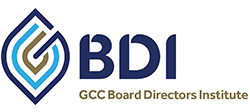 There can be no greater strategic imperative for any business or corporation than to be ‘futurefit’. By ‘futurefit’ I mean, ‘ready, relevant and well positioned for the context and market of tomorrow’. It is the readiness to see and respond to both the threat and opportunity of an exponentially changing and interconnected world. To be ‘futurefit’ requires doing work today that will mean you are ready for tomorrow – regardless of what that tomorrow might look like.
There can be no greater strategic imperative for any business or corporation than to be ‘futurefit’. By ‘futurefit’ I mean, ‘ready, relevant and well positioned for the context and market of tomorrow’. It is the readiness to see and respond to both the threat and opportunity of an exponentially changing and interconnected world. To be ‘futurefit’ requires doing work today that will mean you are ready for tomorrow – regardless of what that tomorrow might look like.
This is far more difficult than it sounds.
There are several impediments that inhibit or block achieving this readiness. Here are (at least) seven challenges that will need to be recognised and addressed if your organisation is to be futurefit. Ensuring the capacity to recognise and meet these challenges is what a wide-awake and vigilant board concerns itself with – it starts at the very top!
Challenge #1: Current success. Being successful can lead to complacency (and arrogance) where the focus becomes one of guarding the status quo whilst reducing healthy risk and experimentation. Learning slows, questions become scarce and the mantra is one of, “don’t change a winning team / formula”. The ‘cash cow’ of the business is guarded at all costs and the unwillingness to address the unwelcomed reality that the cow might be on borrow time, invariably proves fatal. Just ask Kodak.
Challenge #2: Looking inward, not outward. The focus swings from ‘out there’ to ‘in here’. Less attention is given to the broader context, to ‘what is changing and why’ and the focus, attention and energy is all inward. We fail to scan the horizon in a way that identifies both threat and opportunity and as a result, we see neither until it is too late. An easy way to test whether or not you are horizon scanning is to simply look at your last six months worth of agendas: do any ‘horizon scanning’ items appear on those agendas? In my experience most of those agenda items have to do with internal controls and if they do occasionally look outwards, then at best it is only within the narrow confides of the sector in which you compete.
Challenge #3: The failure to adapt. When things stop working (as well as they once did) we respond with exhortations for increased effort whilst looking for greater efficiencies. In the face of real disruptive change, both these responses are like attempting to keep the incoming tide at bay with a bucket. We paint the building but fail to address the cracked foundation – a redundant business model, but more on this later. (Challenge #6). I am often asked for the “one thing above everything else” that organisations / leaders will need in order to survive and thrive into the future. My unequivocal answer: adaptability. The good news is that much like getting physically fit, there are practical things one can do to develop adaptive intelligence at both a personal and organisational level.
Challenge #4: Values that become meaningless. Values drive behaviour and I am yet to meet a company that didn’t have a good (if not great) set of values. Look no further than Enron. Yet, in spite of well-articulated and crafted values, all too often the culture and behaviour leaves much to be desired. When our values become dislocated and marooned from how we act, the writing is on the wall. In many instances values are given mere lip service in the face of the hard profit-defining decisions that need to get made. Much like character, it is not the ‘good times’ that reveal (true) values, rather it is the ‘hard times’.
Challenge #5: Leaders who stop learning. All too often the prevailing assumption within organisations is that leadership / personal development initiatives are ‘for everyone else’ except the Executive team. When you finally have a seat at the main table the need or drive to learn is dulled. In fact, positioning oneself as ‘a learner’ might even have negative connotations as it might be interpreted as ‘not knowing your stuff’. Of course there is also a cultural overlay to this point, one that I won’t get into here but one that nonetheless, needs to be acknowledged. It was Eric Hoffer, an American moral and social philosopher who said that, “In times of change, learners inherit the earth, while the learned find themselves beautifully equipped to deal with a world that no longer exists”.
Challenge #6: Acknowledging that every business model has a ‘sell by date’. This might just be the hardest of challenges and it requires an ability to be able to challenge core assumptions about the business. In my experience few Executive teams have this capacity as invariably they have too much invested in the prevailing business model. This is a key responsibility of the board – to ensure that the capacity to challenge one’s business model, to challenge the core assumptions that underpin the business, is always possible.
Challenge #7: Failure to understand the importance of reputation. Understanding that reputation could be your biggest future risk is a key board responsibility. As both clients and consumers become more informed and aware of corporate responsibility and injustice, damage to the company’s reputation can sink the company in an instant. Companies are being judged on criteria beyond product and service – you are now being held accountable for your impact on society. Reputation has become a stand-alone risk and reputation is now critical to the viability of the company itself. In a Deloitte 2018 survey 53% of chief executives reported that their company lacked the process to identify events and market signals that can damage their organisation’s reputation. Furthermore 70% acknowledged that their organisations do not regularly report to executive management on culture and conduct risks. Facing business risk in an interconnected world has become both a science and an art. Ensuring the mind-set and mechanisms that mitigate risk in an organisation is a Board agenda item that then finds expression at an executive level.
All of these seven challenges are primary board concerns. A smart board will ensure that these challenges are being addressed. The result? Being ready for tomorrow – being futurefit.
December Workshop: GCC BDI Future Trends & Strategy, Manama – Bahrain
This workshop will provide a contextual framework to help leaders understand and explore the what and why of change. Finding a strategic response to an exponentially changing and connected world is the work of contemporary leadership. It requires rethinking much of what has gone before, something easier said than done. This workshop will also explore a framework for what it means to be ‘adaptively intelligent’ – at both a personal and organisational level. Register here



COMMENTS ARE OFF THIS POST